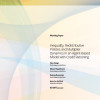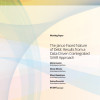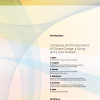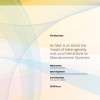We analyze the individual and macroeconomic impacts of heterogeneous expectations and action rules within an agent-based model populated by heterogeneous, interacting firms. Agents have to cope with a complex evolving economy characterized by deep uncertainty resulting from technical change, imperfect information coordination hurdles and structural breaks. In these circumstances, we find that neither individual nor […]







